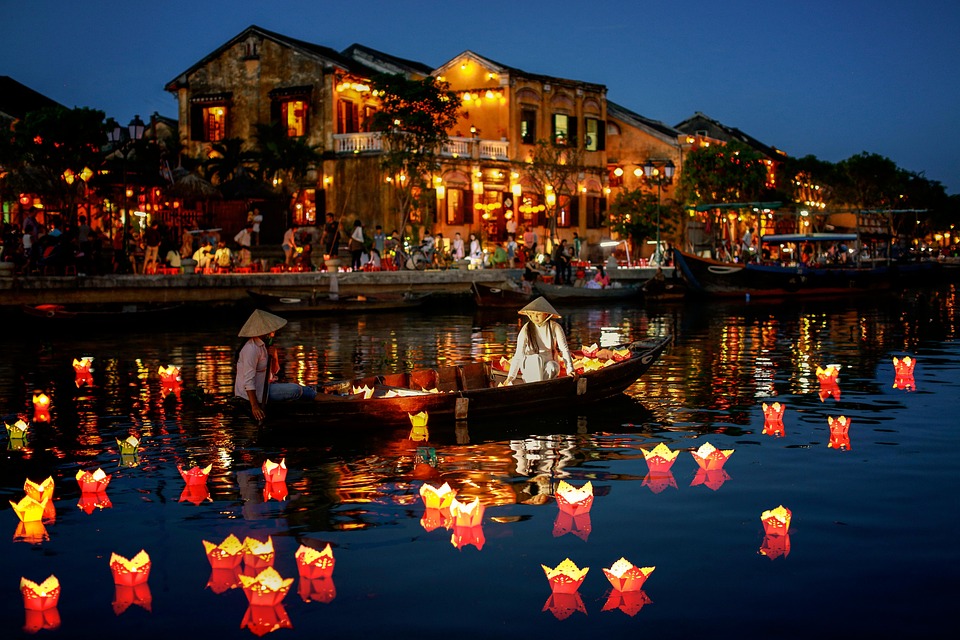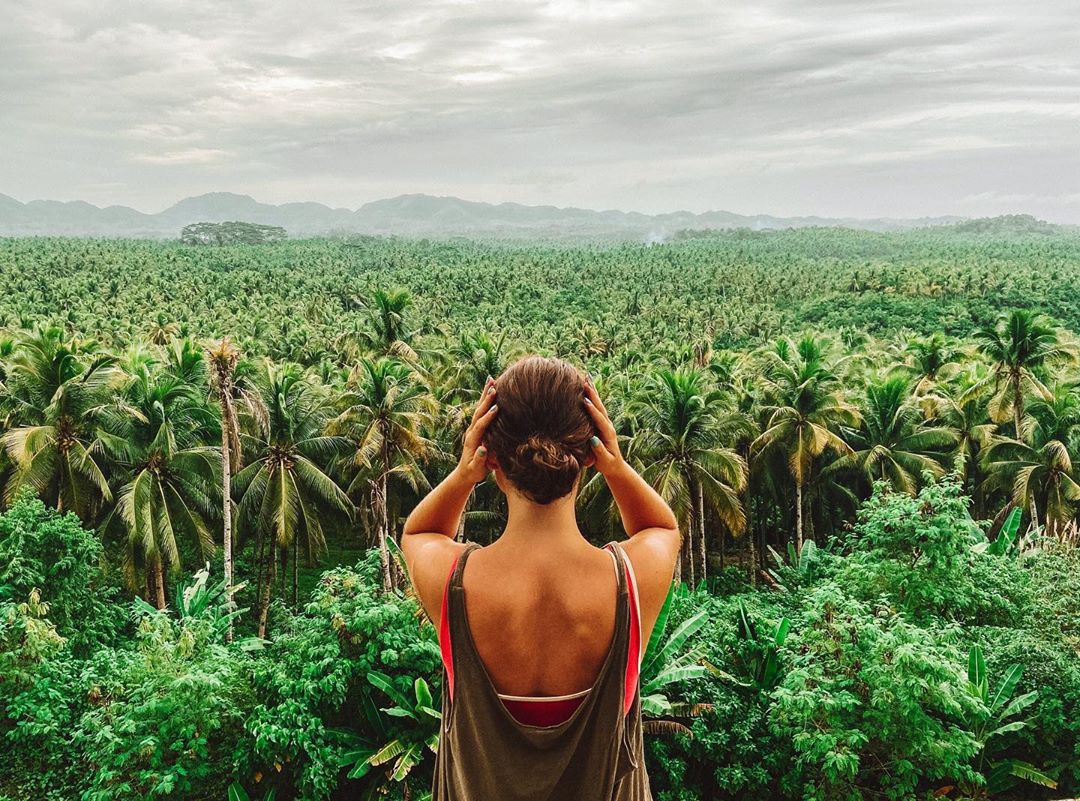Travel constantly reminds us how infinitely rich the world is.
It’s four o’clock in the morning and I am in a pub in Prague. The bartender wipes glasses with the weary slowness of someone who has done it a thousand times before and has nothing else to do. Three complete strangers are sitting around me, a girl from Iceland, a Brazilian and a Swiss man. We have become quieter as the night progresses. The pub closes in twenty minutes. My train leaves in two hours. But I don’t want to go anywhere.
Some people travel to get somewhere. I travel to keep moving, not to escape, but to wake up again and again where everything is new. I admit it, I’m addicted.
New smells creeping through my window.
Strange sounds waking me up.
Unknown faces smiling at me.
Because it’s a hunger that feeds on what it gets.
The more you taste, the more you want to taste.
There is something fundamentally different about waking up in a bed that is not yours. The sheets smell of a detergent you don’t recognise, the mattress feels different under your back, the light falls from an angle your eyes have yet to learn.
For a moment, your body doesn’t know where it is, and in those few seconds of confusion, something magical happens: you are new. Clean. Without the habits and expectations that cling to you like old skin at home.
That’s where the addiction begins.
Travel promises us that opportunity to start over, to discover a version of ourselves we’ve never been before. At home, you’re the one who always drinks the same coffee, takes the same route to work, has the same conversations. On the road, you can suddenly be someone who travels alone, who says yes to invitations from strangers, who dances all weekend without worrying about Monday morning.
Sand still warm from yesterday crumbles between your toes while the sea whispers things you don’t understand. The smell of freshly baked bread wafts through narrow streets, so early that only bakers and stragglers can smell it. It’s a two-euro bottle of wine, cheap but full of the region, shared with people whose names you’ll forget tomorrow, but whose stories will stay with you forever.
✈︎
The sweetness of tomatoes still warm from the sun, picked from a plant you didn’t plant, in a garden that isn’t yours. The scent of lavender rising in the evening from fields you will never see again. The sound of a language you don’t speak but whose melody is familiar, as if you heard it in a previous life. Coffee so strong it makes your teeth ache, served in cups so small you drink them in one gulp, while old men nod at you as if they know exactly who you are.
These are not the moments you plan. These are the moments that find you, that cling to you and refuse to let go, even years later when you are back home and trying to explain why that one afternoon in a roadside restaurant in the middle of nowhere touched you more than all the museums put together.
Being on the road means that time works differently. Dinner at midnight because a conversation couldn’t be stopped. Breakfast at noon because no one is in a hurry. Sleeping when you’re tired, not when the clock says so. It’s stumbling home at sunrise, shoes in your hand, a smile you can’t wipe off your face. It’s rolling out of bed at sunset because the day is just beginning. ‘I have no plans for today’: words that instil fear at home, but here mean pure freedom. And then, at the end: ‘What an amazing day!’, when you don’t even know how it all happened.
✈︎✈︎
Of course, there’s also the other side. The train that’s three hours late while you’re standing on a cold platform. The bus that leaves too early (of course, the one time you’re on time). The flight that’s cancelled because of a volcanic eruption on the other side of the world. Sleeping in airports. Showering at petrol stations.
I remember a night at Charles de Gaulle: stranded flight, closed hotels, and there I was, lying on the cold tile floor among hundreds of other travellers. My backpack as a pillow, listening to the air conditioning and curses muttered in ten different languages. Somewhere a baby was crying, a group of Spaniards were sharing their last crisps, and only then did I understand that this, this uncomfortable, absurd moment, was also travelling, perhaps in its purest form.
Your wallet gets lighter, your heart gets fuller, your throat gets hoarse from talking too much in pubs where no one knows you but everyone sings along. And you know what? That chaos is where the best stories come from.
No one tells stories about flights that landed on time.
Travelling is leaving pieces of yourself behind in every city and trying to find what’s missing in the next one. It’s waking up in an empty dorm room and realising that everyone has already moved on to their next adventure, while you want to stay a little longer in this place that is starting to feel like home.
But what does home actually mean when you’re constantly on the move?
It’s a strange paradox: the more places you get to know, the less you know where you belong. Home is no longer an address, but a feeling you can have anywhere and find nowhere. You get used to the feeling of displacement, to that slight disorientation that comes with having to rediscover where you are and who you are here.
✈︎✈︎✈︎
Sometimes you find that you feel more at home in a hostel kitchen in Cape Town than in your own living room. That you sleep better on a train thundering through the Alps than in your own bed. A kind of a kind of homesickness, not for a place but for a way of being. You miss the feeling of constant movement, of not knowing what will happen every day, of reinventing yourself over and over again.
Like that morning in a hostel in Budapest, when I woke up and discovered that Maya (the girl who had made plans with me the night before to go to the thermal baths) had already left, leaving only a note on the bedside table: “Thanks for listening. Go to the baths, the water is perfect for our broken hearts.” Of course, I went. I sat there for an hour staring at the note in my hand, half smiling, half with tears in my eyes. This is how friendships are made and lost when you’re on the road: intense, sincere, and always too short.
That note taught me something about the nature of connections you make on the road. They are more intense because they are finite, more real because there is no time for superficialities. You share more of yourself in a few hours than you do at home in months, precisely because you know it is temporary. There is a freedom in transience, a permission to be completely yourself because tomorrow you will move on.
✈︎✈︎✈︎✈︎
It’s when nothing reminds you of home, different smells, words you don’t understand, faces that tell different stories. And paradoxically, when everything suddenly reminds you of home: a song, the way someone laughs, the colour of the sky just before sunset.
Those moments of recognition are the most confusing. You’re sitting in a café in Istanbul and suddenly you smell your father’s aftershave. You hear a woman laughing on a train in Rome and she sounds exactly like your best friend. The sun sinks behind the rooftops of Lisbon and the colour yellow that emerges is exactly the same as that evening on the roof terrace of your student house, so many years ago. And then you feel it: that sharp pang of longing for something you can’t even put your finger on.
Maybe that’s the real problem with travelling.
It shows you how many different versions of home there are, how many different ways there are to live, to love, to organise your day. It makes you aware of all the choices you’ve made and could have made. It confronts you with your own smallness, but also with your boundless possibilities. And once confronted with those possibilities, how do you return to a single life, a single way of being?
✈︎✈︎✈︎✈︎✈︎
Travelling is always wanting to stay and always having to go. That constant tension between moving on and putting down roots. Between curiosity about what lies around the next corner and the warmth of places where you already feel at home. It is the realisation that you can live anywhere and don’t really belong anywhere, that every place gives you something different and asks something different of you.
It’s “we’ve been talking for an hour, but what’s your name?”, followed by tears when you say goodbye. And so often that sad “I wish I’d met you sooner”.
Therein lies the answer. It’s not because it’s not enough, but because it reminds us how infinitely rich the world is. How much there is still to discover.
How many different ways there are to live a life. Travel holds up a mirror: it shows you that the way you live is just one of countless possibilities. And that realisation is both liberating and frightening.
Because once you know you can be anywhere, how do you choose where to stay? Once you’ve seen how many different versions of yourself are possible, which one do you choose? Travel makes you aware of your own freedom, and freedom is the hardest gift to accept.
Every journey ends with plans for the next one. Every homecoming with the desire to leave again. It’s like becoming addicted to those moments of pure possibility, to that feeling of anything-can-still-happen that you get when you first walk into a new city, when you know nothing about the streets, the customs, the secrets that will unfold before you. Because somewhere, in a café on the other side of the world, someone else is staring out with that same hungry look. That same longing for what is yet to come.
The bartender in Prague is still wiping glasses. In in twenty minutes, he’ll close up, go home, crawl into his own bed. Tomorrow, someone like me will be sitting there, staring at the door, struggling with that desire to stay and go.
I look in the mirror behind the bar. Do you recognize that look?
Ramon Stoppelenburg
This story has also been translated into Dutch on my personal homepage.




